#dennis elliot
Text
youtube
2 notes
·
View notes
Text





JURASSIC PARK (1993) Dir. Steven Spielberg
#jurassic park#jurassicparkedit#jpedit#filmedit#filmgifs#moviegifs#tvandfilmgifs#junkfooddaily#dailyflicks#scifigifs#cinemapix#userstream#useranimusvox#horrorgifs#creations#mistress-light#steven spielberg#1990s#dennis nedry#dilophosaurus#dinosaurs#wayne elliot knight#this scene always cracks me up#film
915 notes
·
View notes
Text

The Mamas & The Papas - John Phillips
48 notes
·
View notes
Text

terry melcher with the mamas & the papas
#i don't know the mamas & papas well enough to put a date on this....#but most likely mid 60s#terry melcher#the mamas & the papas#cass elliot#michelle phillips#mamas & the papas#the mamas and the papas#denny doherty#terry day#1960s#60s music#california dreaming#california dreamin'#60s#1960s music#vintage
78 notes
·
View notes
Text
𝘛𝘩𝘦 𝘔𝘢𝘮𝘢'𝘴 & 𝘗𝘢𝘱𝘢'𝘴-𝘊𝘢𝘭𝘪𝘧𝘰𝘳𝘯𝘪𝘢 𝘋𝘳𝘦𝘢𝘮𝘪𝘯', 1965
𝘈𝘭𝘭𝘦𝘨𝘦𝘥𝘭𝘺 𝘔𝘪𝘤𝘩𝘦𝘭𝘭𝘦 𝘗𝘩𝘪𝘭𝘭𝘪𝘱𝘴 𝘸𝘢𝘴 𝘦𝘢𝘵𝘪𝘯𝘨 𝘢 𝘣𝘢𝘯𝘢𝘯𝘢 𝘪𝘯 𝘱𝘳𝘰𝘵𝘦𝘴𝘵 𝘢𝘵 𝘣𝘦𝘪𝘯𝘨 𝘮𝘢𝘥𝘦 𝘵𝘰 𝘭𝘪𝘱-𝘴𝘺𝘯𝘤.
Твърди се, че Мишел Филипс е яла банан в знак на протест срещу това, че е била накарана да синхронизира устните си.
#the mamas and the papas#california#california dreaming#michelle phillips#john phillips#denny doherty#cass elliot#music bands#the mama's and papa's band#music show#music artists#music#60s#60s icons#60s fashion#60s music#70s#70s music#70s fashion#music performers#music performance#performance#musician#music is life#music is therapy#music i like#music industry#classic rock#rock#sunshine pop
25 notes
·
View notes
Text
genuinely cannot imagine being so disgustingly full of vile hatred that I would archive my hate-filled screed for posterity
and then to hide behind an idyllic French countryside blog that is completely masking all that hatred
I am truly stunned that so many regular people are bursting with the most horrendous thoughts you could imagine
Deeply sad that this website is home to communities that would foster this ideology
#betrayed in this Denny's tonight#hedgehog-moss#this archive is on par with Elliot Rodgers and I am not kidding
91 notes
·
View notes
Text

"Here's what they call an "outtake," folks! The moment before, or after the perfect pose by the Mamas and Papas in 1971."- 📸 Henry Diltz via Facebook
#the mamas and the papas#cass elliot#michelle phillips#denny doherty#henry diltz#john phillips#photography#original photographers#vintage photography#1971
18 notes
·
View notes
Text

Each night before I go to bed my baby, say a little prayer
#john phillips#cass elliot#michelle phillips#denny doherty#the mamas and papas#classic rock#folk rock
27 notes
·
View notes
Text
I know I haven't publish for a while especially my split book so chapter 6 of my split book is now up, also my Olivia and Rafael chapter 8 is now up on wattpad
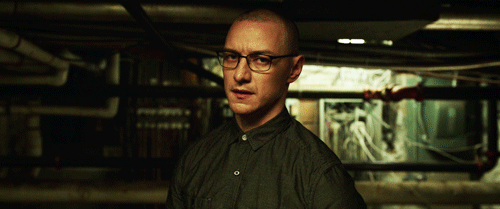

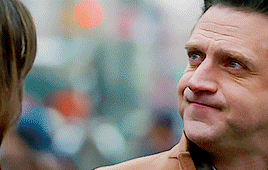

#wattpad#fanfic#split movie#james mcavoy#Split Dennis#Hedwig#my own character#law and order svu#olivia benson#rafael barba#barson#Olive x Rafael#baby#elliot stabler#fin tutuola#john munch#bobby goren
31 notes
·
View notes
Text





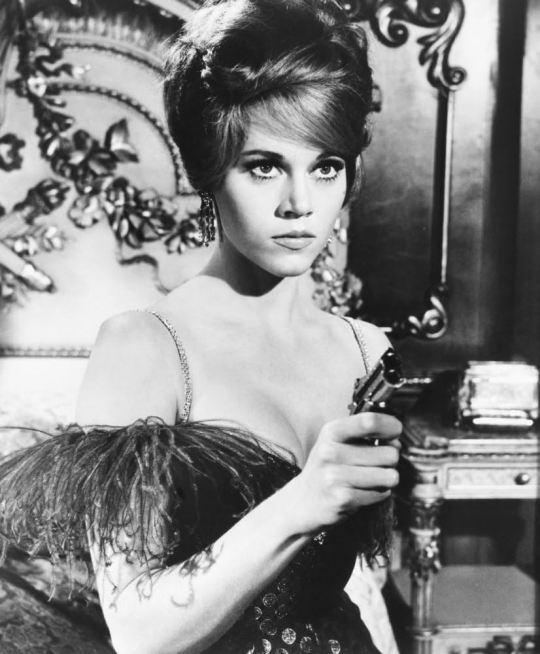


Cat Ballou (1965) Elliot Silverstein
September 21st 2024
#cat ballou#1965#elliot silverstein#jane fonda#lee marvin#michael callan#tom nardini#dwayne hickman#nat 'king' cole#nat king cole#stubby kaye#john marley#reginald denny#bruce cabot#arthur hunnicutt#jay c. flippen
3 notes
·
View notes
Text
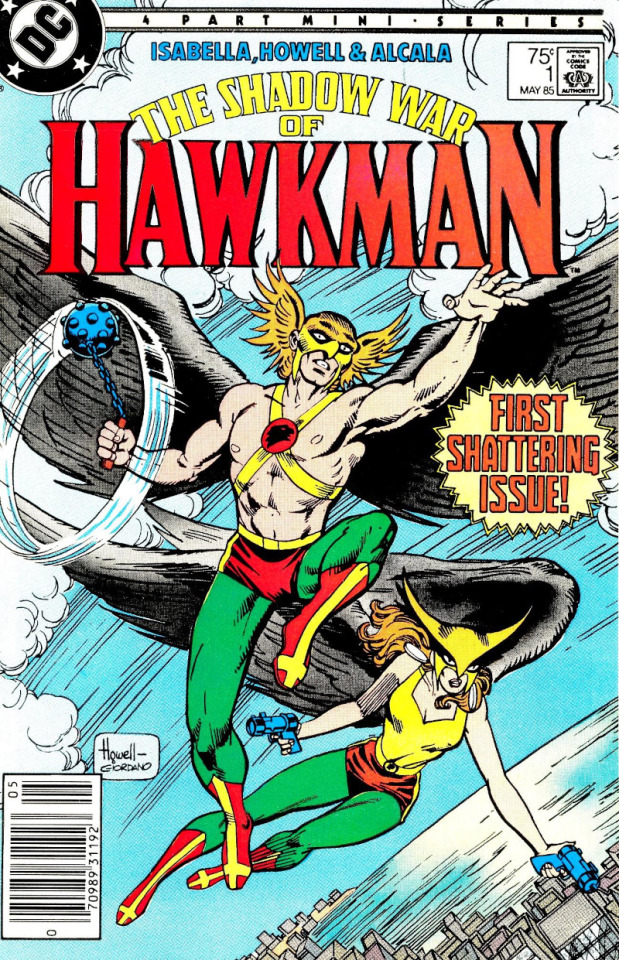
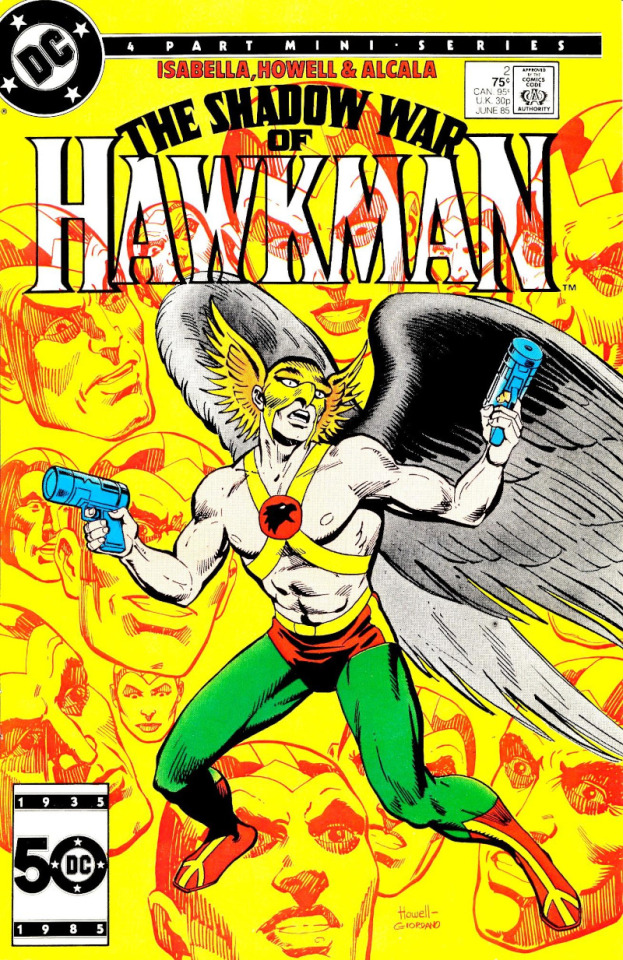
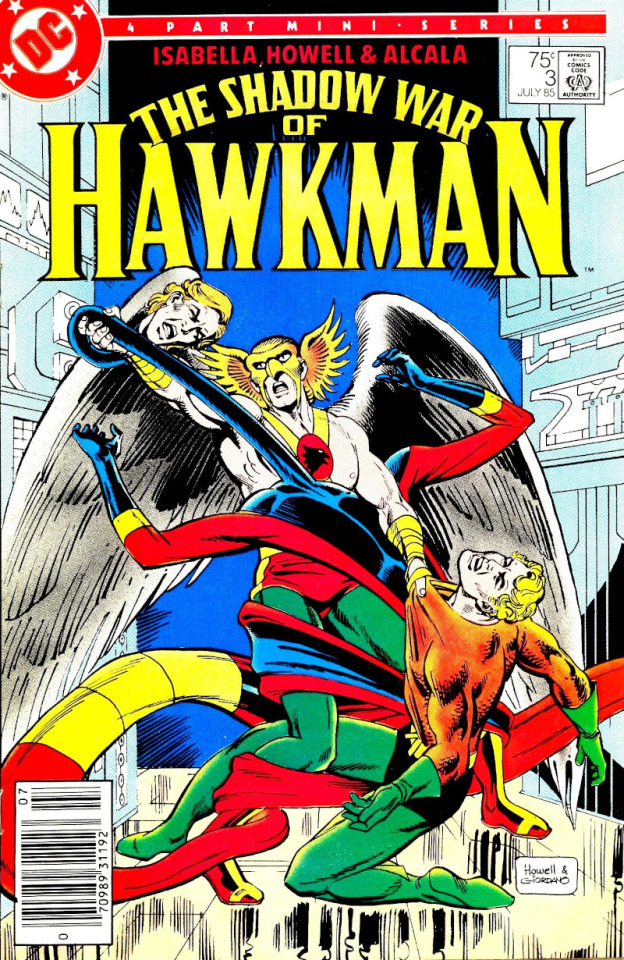
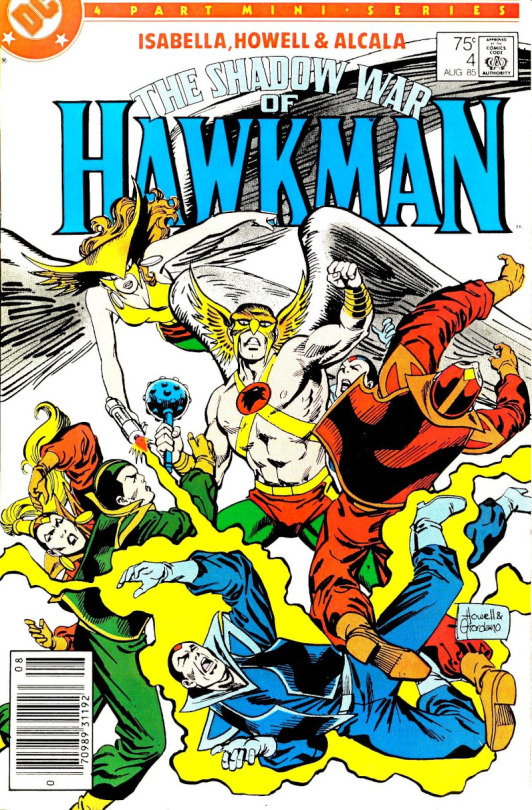
May–August 1985. Conceived before the Crisis on Infinite Earths but published concurrently, THE SHADOW WAR OF HAWKMAN was an ambitious attempt by writer Tony Isabella and editor Alan Gold to forge a new direction for Hawkman and Hawkwoman, who'd been stumbling along since the late 1960s in a series of backup features and guest spots. The story borrows a page or three from the lexicon of paranoid '70s conspiracy thrillers, revealing that agents of the Hawks' homeworld of Thanagar are now on Earth, working in secret to lay the groundwork for a military invasion by using the Absorbacon, a Gardner Fox gimmick capable of gathering all the knowledge of a particular world, to gather exploitable secrets from the minds of Earth people. Thanagarians are immune to the Absorbacon's mind-reading powers, but the Hawks are cut off from most of their friends and allies, fearing that any information they share with their JLA comrades might immediately fall into enemy hands. The infiltrators, meanwhile, target the Hawks in hopes of seizing their now rare and valuable Thanagarian technology.
In the Silver Age Hawkman stories, Thanagar had been presented as a typical scientifically advanced post-scarcity society, where crime is mostly limited to a handful of thrillseekers and alien invaders. However, it had suffered a series of major crises in the '70s, which the miniseries helpfully summarizes while filling in a few blanks:
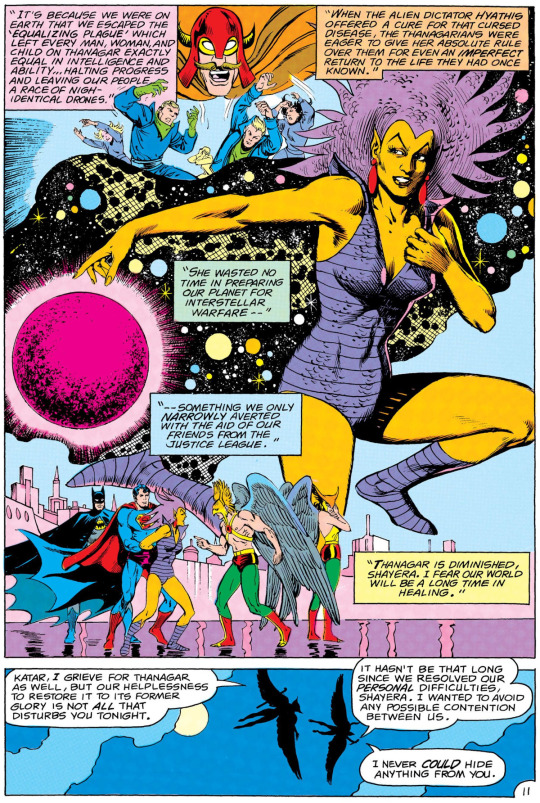
(Inevitably, a few key points of the original stories have gotten lost in translation: In the original Equalizing Plague storyline in JUSTICE LEAGUE OF AMERICA #117–119, Katar and Shayera are both infected, but Katar is able to cure himself and later Shayera, albeit not anyone else on Thanagar. The cure provided by Hyathis, an old JLA villain, is not part of that story, but is revealed in the 1978 Adam Strange/Hawkman crossover in SHOWCASE #101–103.)

The original Equalizing Plague storyline is a weirdly reactionary effort for the usually humanistic Elliot S! Maggin, about a silly-looking space villain (the dude with the red helmet and the mustache in the first page above) whose desire for universal equality destroys whole societies by transforming everyone into nebbishes. Even Gene Roddenberry might have balked at that one, and a central problem with Isabella's "Shadow War" storyline is that it requires readers to not only take that story seriously, but even empathize with how it has left Thanagarians susceptible to fascism. (The villains are never very sympathetic, but you're supposed to see where they're coming from, which would be a lot to ask even in less ridiculous circumstances.)
Despite that, the SHADOW WAR miniseries is a decent effort, with higher-than-usual stakes and an effective sense of menace. The scripts are a bit florid — albeit fairly restrained for Isabella — but the art suits them very well, with Rich Howell's Murphy Anderson-like pencils given moody atmosphere by Alfredo Alcala's inking. It sold well, leading to a 1986 HAWKMAN SPECIAL by Isabella and Howell with new inker Ron Randall. This has Katar agonizing over the Thanagarian agents he's killed, which is most interesting for Isabella's novel take on the Gentleman Ghost, an old Hawkman villain who unexpectedly becomes the Hawks' new ally.

Unfortunately, what Isabella and Gold had intended as a five-year saga quickly ran into trouble in the new post-Crisis HAWKMAN series that followed the SPECIAL. According to Isabella, the principal problem was that new editor Denny O'Neil, who took over soon after the launch of the new series, was annoyed that Isabella would attempt something so grandiose and demanded that the "Shadow War" be wrapped up quickly. Isabella soon bowed out, leaving Dan Mishkin and co-editor Barbara Randall to tie things up.
The dismaying resolution, in HAWKMAN #12, ends (temporarily) Thanagar's adventurism on Earth, but culminates in Katar deliberately choosing to leave the planet's new military government in power, with his father's old friend Rul Pintar taking the place of the previous ruling junta. Conceding that the Thanagarian people will be "helpless" without a dictatorship, Katar announces, "You lead them, Rul Pintar! Then at least their next dictator will be a benevolent one who remembers Thanagar's greatness--and can perhaps give a little bit of it back to them!" Thus, what had begun as a paranoid thriller about a secret alien invasion concludes with Hawkman's explicit endorsement of fascist dictatorship, after which he and Shayera fly back to Earth so it won't be their problem. Yikes!
Having lost any sense of narrative direction along with its moral compass, the book lasted only five more issues and was canceled in late 1987. Isabella says some of his original ideas were later recycled for "other company-wide crossovers," which I assume refers primarily to the 1988 INVASION! event, in which Thanagar was one of the invaders.
#comics#the shadow war of hawkman#tony isabella#rich howell#alfredo alcala#dick giordano#alan gold#denny o'neil#dan mishkin#gardner fox#hawkman#katar hol#hawkwoman#shayera hol#thanagar#thanagarians#elliot s maggin#the text pages of the miniseries waste some time#trying to arbitrarily retcon some past hawkman stories#i don't necessarily dispute the rationale#but it was something that would become a major problem#for dc in general and hawkman in particular#so it did not set a good precedent in that respect
10 notes
·
View notes
Text
Cass Elliot’s Death Spawned a Horrible Myth. She Deserves Better
The Mamas & the Papas singer was known for her wit, her voice and her skill as a connector. For 50 years, a rumor has overshadowed her legacy.

Michael Putland/Getty Images
By Lindsay Zoladz
Published May 9, 2024
Updated May 18, 2024
Onstage with her group the Mamas & the Papas at the Monterey International Pop Festival in June 1967, Cass Elliot, the grand doyenne of the Laurel Canyon scene, bantered with the timing of a vaudeville comedian. “Somebody asked me today when I was going to have the baby, that’s funny,” she said, rolling her eyes. The unspoken punchline — if you could call it that — was that she had already given birth to a daughter six weeks earlier.
“One of the things that appeals to so many people about my mom is that there’s a certain level of triumph over adversity,” that daughter, Owen Elliot-Kugell, said over lunch at the Sunset Marquis Hotel in Los Angeles on a recent afternoon. “She had to prove herself over and over again.”
Elliot was a charismatic performer who exuded infectious joy and a magnificent vocalist with acting chops she did not live to fully explore. July 29 is the 50th anniversary of her untimely death at 32, a tragedy that still spurs unanswerable questions. Might Elliot, who was one of Johnny Carson’s most beloved substitutes, have become the first female late-night talk show host? Would she have achieved EGOT status?
Half a century after her death, her underdog appeal continues to inspire. Last year, “Make Your Own Kind of Music” — a relatively minor 1969 solo hit that has nonetheless had cultural staying power — became such a sensation on TikTok that “Saturday Night Live” spoofed it, in a hilariously over-the-top sketch in which the host Emma Stone plays a strangely clairvoyant record producer. “This song is gonna be everywhere, Mama,” she tells Elliot, played by Chloe Troast. “Then everybody’s gonna forget about it for a long, long time, but in about 40, 50 years, I think it’s gonna start showing up in a bunch of movies, because it’s a perfect song to go under a slow-mo montage where the main character snaps and goes on a rampage.”

Cass Elliot performing on her television special “Don’t Call Me Mama Anymore” in September 1973. After she went solo, she found it hard to shake her nickname.Credit...CBS Photo Archive, via Getty Images
“S.N.L.” didn’t make a single joke about Elliot’s weight — something that was unthinkable half a century ago. During the height of her fame, Elliot seemed to co-sign some of the jabs at her expense with a shrugging grin.
“No one’s getting fat except Mama Cass,” the Mamas & the Papas sang in tight harmony on the self-mythologizing 1967 hit “Creeque Alley.” After the infamously tumultuous group broke up a year later, Elliot was a frequent guest on “The Carol Burnett Show,” where she occasionally went for the cheap laugh. In an otherwise uproarious sketch about two prudish women browsing a store’s “dirty books” section, Elliot holds up a book titled “Eat and Lose Weight” and says, “I got as far as ‘Eat’ and then I didn’t understand the rest.”
“As she had learned early on, the best way to deal with an uncomfortable situation is with humor,” Elliot-Kugell, who has her mother’s cascading hair and dry wit, writes in her new memoir, “My Mama, Cass.” But, as she said over lunch, that doesn’t mean her mother was always laughing on the inside. “That pain had to go somewhere,” Elliot-Kugell told me. “When I think about some of the things that had allegedly been said to her during her lifetime, you can’t hear that over and over and not let it hurt.”
But of course, the most enduring joke at her expense was the one she didn’t live to tell, or to rebut. Have you heard the one about the ham sandwich?
For years, the origin of the story that Elliot died from choking on a ham sandwich — one of the cruelest and most persistent myths in rock ’n’ roll history — was largely unknown. Then in 2020, Elliot’s friend Sue Cameron, an entertainment journalist, admitted to publicizing it in her Hollywood Reporter obituary at the behest of Elliot’s manager Allan Carr, who did not want his client associated with drug use. (Elliot died of a heart attack, likely brought on by years of substance abuse and crash dieting.) But that cartoonish rumor — propagated in endless pop culture references, from “Austin Powers” to “Lost” — cast a tawdry light over Elliot’s legacy and still threatens to overshadow her mighty, underappreciated talent.

The Mamas & the Papas: Denny Doherty, Michelle Phillips, Elliot, Scott McKenzie (who joined a later version of the group) and John Phillips.Credit...Bentley Archive/Popperfoto, via Getty Images
ELLIOT’S SISTER, LEAH, coined a phrase for the strong, brassy way everyone in their family sang: “the Cohen Honk.”
Cass was born Ellen Naomi Cohen into a music-loving household in suburban Baltimore. Her stage name partly came from her father’s penchant for calling his spirited daughter “the mad Cassandra.” She was a precocious, uncommonly bright child who, in the years after World War II, liked to ask dinner guests what they thought about the “world situation.” In high school she was known for her bold, slightly unkempt personal style that flew in the face of 1950s decorum. According to her biographer Eddi Fiegel, Elliot sometimes wore “wild combinations of Bermuda shorts and high heels, with white gloves to cover her bitten-down nails.”
Many people in Elliot’s life trace her struggles with her weight to when she was 6 and went to stay with her grandparents while recovering from ringworm. They fed her well, as grandparents sometimes do, and she quickly became self-conscious about her size. By high school, she had been prescribed Dexedrine, an amphetamine then used as an appetite suppressant. “The thought that something is wrong with you is bad enough,” Elliot-Kugell writes, “but the idea that a pill or a drug might fix you can be even more dangerous.”
Still, Elliot showed remarkable self-belief. The book recounts her telling anyone who would listen “that one day she was going to become the most famous fat girl that ever lived.”
She struck a deal with her parents: If she moved to New York and didn’t find musical success in five years, she would come home and study a more respectable field, like medicine. She left home in late 1960; “California Dreamin’” was released in December 1965. She later told an interviewer: “I really just made it under the wire!”
Broadway was Elliot’s first love, but folk music was the style of the day. She brought her own distinctive flair to it in her early groups, the Big 3 and then the Mugwumps, which featured a Canadian tenor named Denny Doherty. After the Mugwumps’ split, Doherty fled to the Virgin Islands with his new friends John and Michelle Phillips to work on material for a yet-unnamed group. Elliot had sung with them casually while they were all hanging out — at least once when they were all on LSD — and she knew her voice was the missing piece in their sound.
But John, the bandleader, was brutishly reluctant. According to Scott G. Shea, a biographer of the Mamas & the Papas, Phillips “had a vision in his head” of “a group that not only sounded like an electrified Peter, Paul and Mary, but also looked like them.” Shea puts it bluntly: “Michelle was to be the centerpiece, and, in his mind, Cass was too fat to even be considered.”
The group projected a chumminess that was central to their appeal, but few people know how hard Elliot had to push to become part of the band. She showed up unannounced in the Virgin Islands hoping to ingratiate herself, but Phillips wouldn’t budge until an act of fate intervened. While walking down the St. Thomas alley that the Mamas & the Papas would later immortalize in song, debris from a construction site hit Elliot on the head and knocked her unconscious. John Phillips would later claim that Elliot’s concussion caused her vocal register to change, and it was another of those stories Elliot learned to repeat with a self-deprecating joke.
“The real story is that John didn’t like my mother’s look,” Elliot-Kugell writes. She believes “he made up the story about a fake increase in vocal range to justify his choice to finally add my mom to the band months later.”
Elliot went solo after the short-lived group’s demise, buoyed by the success of “Dream a Little Dream of Me,” a Mamas & the Papas single on which she sang lead. The final solo album she released, in 1973, had a pointed title: “Don’t Call Me Mama Anymore.” “The moniker of ‘Mama’ had always felt like a reference to her size — that is, ‘Big Mama’ — and she hated that,” Elliot-Kugell writes.

From left: Joni Mitchell, Elliot and Judy Collins at the Big Sur Folk Festival. Elliot became known as a connector in the Laurel Canyon scene.Credit...Sulfiati Magnuson, via Getty Images
Elliot remains an underrated heroine in the story of the Laurel Canyon scene, not only as a musician but also as an amiable hostess who knew how to link up like-minded people. Doherty liked to call her “the Puppeteer.”
In 1964, she introduced her friends John Sebastian and Zal Yanovsky; they became the Lovin’ Spoonful. When she heard that David Crosby and Stephen Stills had begun making music together, she suggested they add a high voice to the mix, and brought them Graham Nash. “I will give you a hundred dollars,” David Crosby told Elliot’s biographer, “if you can find a single person who says they hated Cass.”
But there was also something bittersweet about Elliot’s kinship with all these men. “I think part of the reason they all adored her is they weren’t threatened by her,” Elliot-Kugell said. “She knew more about these guys and had a relationship on a deeper level than some of their own wives or girlfriends had.” She added with a wry chuckle, “Did that mean she didn’t want to jump into bed with half of them? She probably did!”
Elliot’s unrequited love for her bandmate Doherty was perhaps the hardest to bear, especially after he and Michelle Phillips had an affair that nearly broke up the band before their first album was even released. Elliot had been smitten since the night they met, at a Greenwich Village bar where they each threatened to drink the other under the table, and eventually decided to drink … under the table. As he put it in his one-man show about the group’s history, “I knew she loved me, and I loved her too, but not like she wanted me to. She did weigh 300 pounds, and I wasn’t man enough to deal with that.”
The most difficult passages of “My Mama, Cass” are those in which Elliot-Kugell reckons with her mother’s persistent loneliness. “After the shows, when they’re screaming her name onstage and she’s bowing, she was the only one going back to the hotel by herself,” she said. “Everybody else had someone, and she didn’t.”
Elliot’s need for love and companionship is what drove her to the decision — relatively radical for a famous woman in the late 1960s — to become a single mother. When she learned she was pregnant at the height of the group’s success, after a brief fling with its touring bassist, she was defiant in her decision to raise the child on her own. “As it turned out,” Elliot-Kugell writes, wrenchingly, “my mom’s desire to have someone in her life who wasn’t going to up and leave her was what led to her desire for a child. It’s how I came to be.”

The Mamas & the Papas onstage in 1966. The group split two years later.Credit...Michael Ochs Archives/Getty Images
WHEN I FINALLY got Sue Cameron on the phone, she was calling from the Atlantic Ocean, “somewhere between Bermuda and Portugal.” A journalist for more than 50 years who has published a book titled “Hollywood Secrets and Scandals,” she sometimes gives lectures on cruise ships. She was happy to reminisce about her old pal. “She had a big smile and this wide open face, very happy to see people,” Cameron said. “You just would immediately love her and want her to be your best friend.”
Cameron met Elliot when she interviewed the Mamas & the Papas in 1966; they realized they were neighbors and quickly became “sit-by-each-other’s-pool kind of friends.” Cameron has stories, like the one about the night they ran into Ann-Margret and Elliot delivered the perfect one-liner about her massive engagement ring (“I could skate on that”); or all the times Elliot would walk around with a credit card in her shoe because she didn’t like to carry a purse.
Her most painful memory is her final dinner with Elliot at Mr. Chow in the summer of 1974, before Elliot left for London. She’d never seen her friend so happy. “It was just a magical moment,” Cameron recalled. “It was just, like, the crescendo of her being. She’d had some TV specials, she was now going to go do a big nightclub act. Everything was fabulous.”
After a two-day stint of partying in London, Elliot told her friend Joe Croyle — a dancer in her show who was crashing with her at Harry Nilsson’s pad — that she was going to take a bath and turn in early because she was exhausted. Croyle figured she would be hungry too, so he fixed her a sandwich with ham, the only thing he could find in the fridge, along with some Coca-Cola. The ham sandwich, the cruelly cartoonish symbol that would come to define Elliot, was actually a gesture of care: a friend making her a meal she never got to enjoy.
Cameron heard about Elliot’s death in the newsroom of The Hollywood Reporter, where she was working at the time: “I kicked into professional mode and said, no one else is going to write that obit. I’m going to do it.” She tracked down Carr by phone in Nilsson’s apartment. “He could barely speak,” Cameron recalled. She asked what happened, and he said he didn’t know. “‘Oh, wait,’” she recalled him saying. “‘I see a half-eaten ham sandwich on the night stand. That’s good. You tell everybody that she choked on a ham sandwich, do you understand me?’”
“And I did it,” she added, “because I wanted to protect Cass.”
What was she protecting her from? “I was not aware of a lot of drugs,” she said. “I just wasn’t one of those people. And I had some suspicion around the time that she was going to London that she was on some sort of pills, but I didn’t really know anything.” In a split second, Carr and Cameron decided there was less shame in a woman ridiculed for her weight choking to death than there was in her having a drug problem. “What a terrible thing,” Cameron said, “but I was in too much of a state of shock to clean it up.”
She, too, is confounded by the story’s persistence. “Of all of the things I’ve done,” she said, “this ham sandwich has followed me my entire life.”
That story had long haunted Elliot-Kugell, too, though she felt some closure after Cameron privately divulged its origins to her when they met for lunch in 2000. Elliot-Kugell is cleareyed about what probably caused her mother’s death: “I mean, look. She was up for 48 hours, and she was at a party. Do the math.” But she doesn’t want to dwell on that. “The thing that was really important for me was that I didn’t want to write a salacious book,” she said.
In some sense, any memoir by a child of the Mamas & the Papas exists in the shadow of Mackenzie Phillips’s 2009 bombshell, “High on Arrival,” in which she accused her father John Phillips of sexual assault. But Elliot-Kugell’s memoir belongs on a different shelf entirely. It is a humanizing portrait of a woman whose legacy has, for far too long, been reduced to an outdated urban legend.
And it is a tale of an imperfect mother and a grieving daughter, of loss and long delayed catharsis. A few weeks before we spoke, Elliot-Kugell went to visit her mother’s grave. “It’s always weird when I go there, because I never know what to say,” she said. “But that day felt a little different because when I went up to the grave, I just said, ‘Hi.’ Like the way I would greet one of my cousins, or somebody who I know really well who I haven’t seen in a while.”
“I thought to myself, ‘Why, why why does it feel like this?’” she said.” All at once it dawned on her: “After going through this experience, I feel closer to her.”
Read by Lindsay Zoladz
Audio produced by Adrienne Hurst.
#Mama Cass#Cass Elliot#Ellen Naomi Cohen#The Mamas and the Papas#California Dreamin’#Leah Kunkel#John Phillips#Michelle Phillips#Denny Doherty
2 notes
·
View notes
Text

The Mamas & The Papas - John Phillips
86 notes
·
View notes
Text
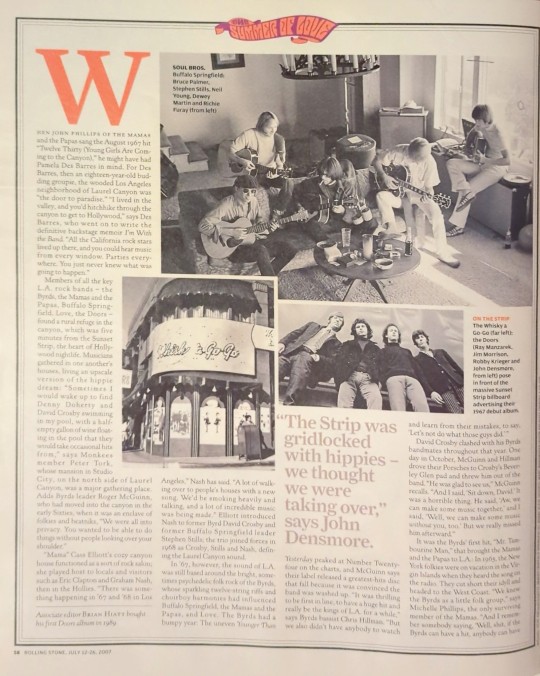

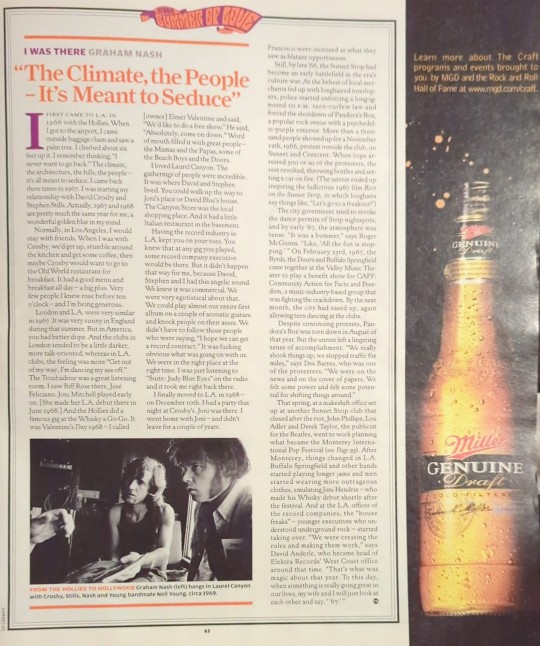
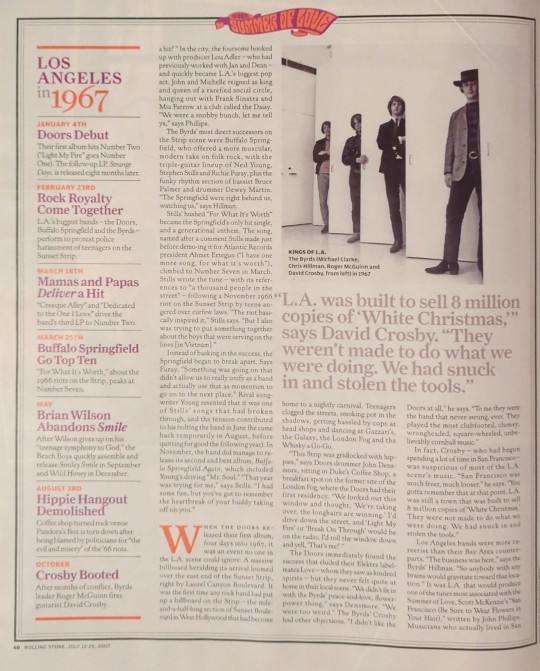
#rolling stone#rolling stone magazine#the fortieth anniversary#the mamas and the papas#john phillips#michelle phillips#mama cass elliot#denny doherty#buffalo springfield#bruce palmer#stephen stills#neil young#dewey martin#richie furay#the doors#ray manzarek#jim morrison#robby krieger#john densmore#the byrds#michael clarke#chris hillman#roger mcquinn#david crosby#graham nash
8 notes
·
View notes
Photo
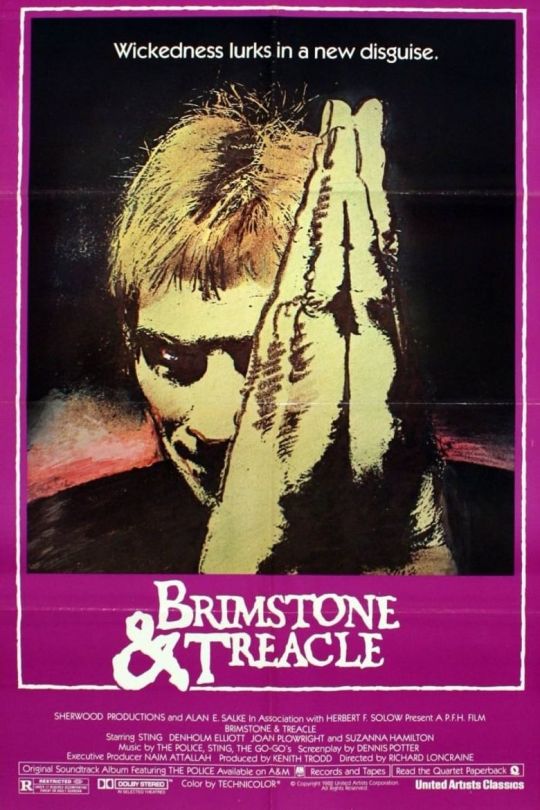
#brimstone and treacle#movie poster#movie posters#sting#denholm elliot#joan plowright#suzanna hamilton#the police#dennis potter#richard lncraine#the police band#80s#1980s#movie#movies#poster#posters#film#films#film posters#gordon matthew thomas sumner
26 notes
·
View notes
Note
Whos your least favorite Just Shoot Me character?
HOW DARE YOU MAKE ME CHOOSE; I LOVE ALL OF THEM SO MUCH!!! 🥺😭🤧💔
❤️🩹
But ok, ok, fine...
Least favorite is Elliot DiMorro.
😬🫢😳🫣😶🌫️😩
And it's not that I don't like him or anything like that!!!!
I just like the others better. 🤷🏻♀️😔
Thanks for asking, friend!! 💓💯🌟
#asks#askbox#answered#beloved mutual 😊💖#Just Shoot Me!#characters#Elliot DiMorro#Jack Gallo#Maya Gallo#Dennis Finch#Nina Van Horn#I almost said Vicki but she barely counts because she was only in a few episodes#of the final season#So to me she doesn't really count enough for her#to be my least favorite overall!!#Anyway...!!#Sorry Elliot 😔
7 notes
·
View notes